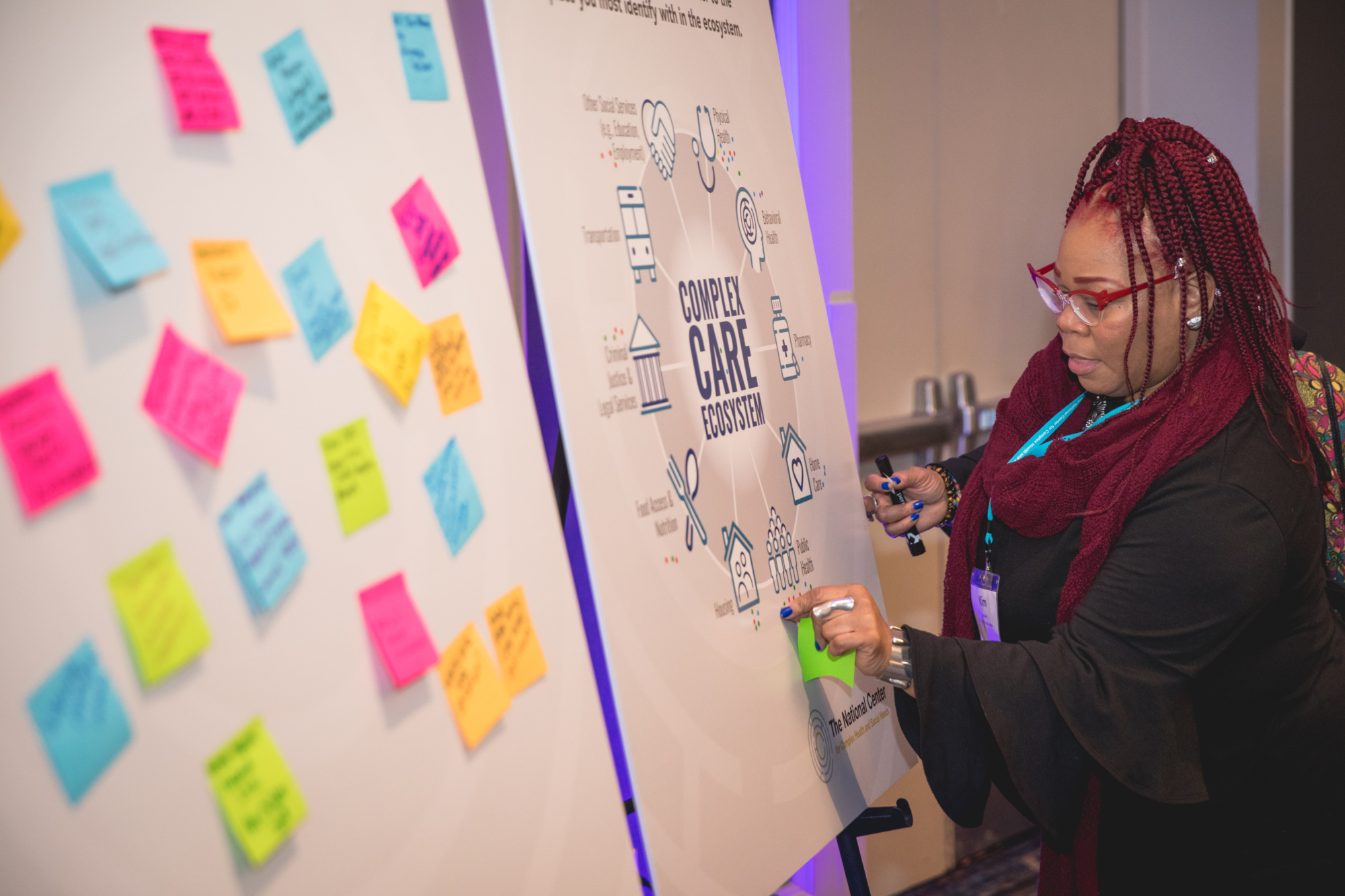Advisory councils transformed: Creating meaningful partnerships with patients, families, and communities
Pre-conference offering at Putting Care at the Center 2025
Hilton Portland Downtown, Portland, OR 12:30-4:30 pm PT

A ecosystem of care is a local network of organizations, sectors, fields, and/or professions working collectively to address the root causes of poor health among individuals with complex health and social needs.
Ecosystems of care may include:
People with multiple conditions and barriers need services from multiple organizations and sectors, and are falling through the cracks of our fragmented health and social service systems.
Ecosystems of care advance health equity and improve the effectiveness, efficiency, experience, and quality of care by:
Our Ecosystem Assessment Tool defines the attributes of a strong ecosystem of care:
A well-prepared, diverse, interprofessional workforce that is supported to deliverhigh quality, person-centered care. The workforce should include people from the community served.
Workforce members should be trained to think creatively and to collaborate effectively with program participants and partners.
Ecosystem partners continuously evaluate the continuum of services that are needed by the community served to ensure that services are accessible and effective.
Ecosystem partners ensure service gaps are filled and that care management supports individuals to achieve their identified goals in a timely manner.
Organizations generate, share, and use quantitative and qualitative data to identify and understand the populations they serve, assess needs, coordinate services, adapt best practices, and continuously measure and improve the delivery of care and support.
A well-functioning process and structure for identifying priorities, designing and improving services, and collaborating with all relevant stakeholders, including communities and people with lived experience (PWLE).
Leaders recognize the power differentials among participants and seek to share power.
Resources and payment arrangements are directed to the organizations and services that are essential to improve the health and well-being of the populations served, particularly community-based organizations and those providing non-medical services for health-related social needs.
Community members and people with lived experience are key stakeholders who are meaningfully engaged in shaping all aspects of care delivery, program design, quality improvement, and governance.
The most powerful examples of successful ecosystems of care feature local and regional communities coming together, honestly evaluating their systems, understanding who’s at the table, and identifying who’s missing and marginalized. This is the hard work of building authentic, healing relationships—and it’s absolutely necessary.
Our Ecosystems 101 brief has the information and examples you need to get started. Ready to go deeper? Use our Ecosystem Assessment Tool to:
Learn from our work strengthening ecosystems of care in South Jersey and in communities across the country.
More tools and resources:
By Rebecca Koppel, Senior Program Manager for Field Building and Resources
Building the complex care field Strengthening ecosystems of care Quality improvement SDOH & health equity
Care management & redesign Strengthening ecosystems of care Quality improvement
Data analysis & integration Strengthening ecosystems of care Funding & financing Measurement & evaluation
Community & consumer engagement Data analysis & integration Strengthening ecosystems of care
Building the complex care field Strengthening ecosystems of care





